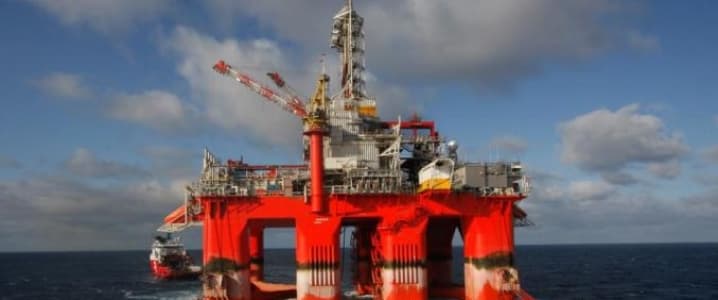Deepwater drilling was more deeply wounded by the oil price crash than conventional and shale onshore drilling. As the global oil and gas industry is slowly turning the corner, it is carefully picking projects to develop. Gone are the old US$100-per-barrel oil days, and the higher-cost offshore drilling continues to feel the capex crunch in the world of US$50 oil.
The offshore industry has started pushing for standardization in a bid to lower costs, attract more spending from exploration companies, and return to generating profits. Offshore services companies are trying to reduce the costs for manufacturing their technology by standardization of materials and designs, aiming to make technology and solutions suitable for more than just one project, or one offshore well.
“There’s a lot of effort in the industry to standardize designs, standardize materials, to make things less expensive,” Marcus Smedley, vice president of sales and marketing at offshore drilling and production equipment maker Dril-Quip, told the Houston Chronicle.
Reducing costs and increasing standardized has the potential to reduce the costs for drilling and extracting oil offshore. It could also increase efficiency—the favorite buzzword of the oil and gas industry since oil prices started crumbling.
Companies are competing in boasting new technology developments that save operating days and costs for drilling wells. Schlumberger launched this week at the 2017 Offshore Technology Conference a mapping-while-drilling service, which the company says saves three operating days. Earlier this week, Baker Hughes unveiled a deepwater multistage fracturing service, which it says saved an estimated 25 days rig time and US$40 million on a well completion job in the Gulf of Mexico.
Offshore investment and discoveries hit a low point last year, but even in the offshore oil business, signs are emerging that costs have been reduced and the most viable and attractive projects are catching up with the U.S. shale plays. Related: All Eyes On Saudi Arabia As OPEC Begins To Unravel
In 2016, just 13 percent of all conventional resources sanctioned were offshore, compared with more than 40 percent on average between 2000 and 2015, the International Energy Agency (IEA) said last week, noting that offshore accounts for almost a third of crude oil production and is a crucial component of future global supplies. Investment in the North Sea was less than US$25 billion in 2016, half the amount invested in 2014, the IEA said.
Rystad Energy said in January that the total offshore discovered liquids resources in 2016 were slightly below 2.3 billion barrels, which was 90 percent lower than in 2010. Rystad Energy sees exploration activity slowly picking up from 2018, which would lead to more discoveries towards the end of this decade and beyond.
According to Wood Mackenzie, the downturn has resulted in a leaner and more cost-competitive deepwater industry. Global deepwater project costs have dropped by just over 20 percent since 2014, and the most attractive projects are now competing with U.S. tight oil plays.
In shale, oilfield services costs are expected to increase, potentially slowing down the drop in breakeven costs. Related: Are Gasoline Prices About To Crash? Glut Moves Downstream
WoodMac sees 5 billion barrels of pre-sanction deepwater reserves now breaking even at US$50/boe or lower, assuming a 15-percent rate of return hurdle (NPV15). With cost inflation in tight oil “back with a vengeance” and considerable room to lower deepwater breakevens, “the playing field between tight oil and deepwater is about to get a lot more level,” the consultancy says.
“We are at last beginning to see the first signs of recovery in deepwater, driven primarily by cost reduction and portfolio high-grading. Projects in the US Gulf of Mexico in particular have made significant strides, with many reducing NPV15 breakevens from above US$70/boe to below US$50/boe,” said Angus Rodger, Asia-Pacific upstream research director at Wood Mackenzie.
Amid the emerging signs of deepwater recovery, exploration companies are looking to re-evaluate project designs to make them less expensive, and to improve drilling and well performance. Offshore operators may get more bang for their buck using multi-service and more universal offshore technology from the offshore service providers.
By Tsvetana Paraskova for Oilprice.com
More Top Reads From Oilprice.com:
- Russia Inclined To Extend Output Cut Deal With OPEC
- Oil Prices Crash To Pre-OPEC Deal Levels
- Saudi Power Struggle Could Destabilize The Entire Middle East


















